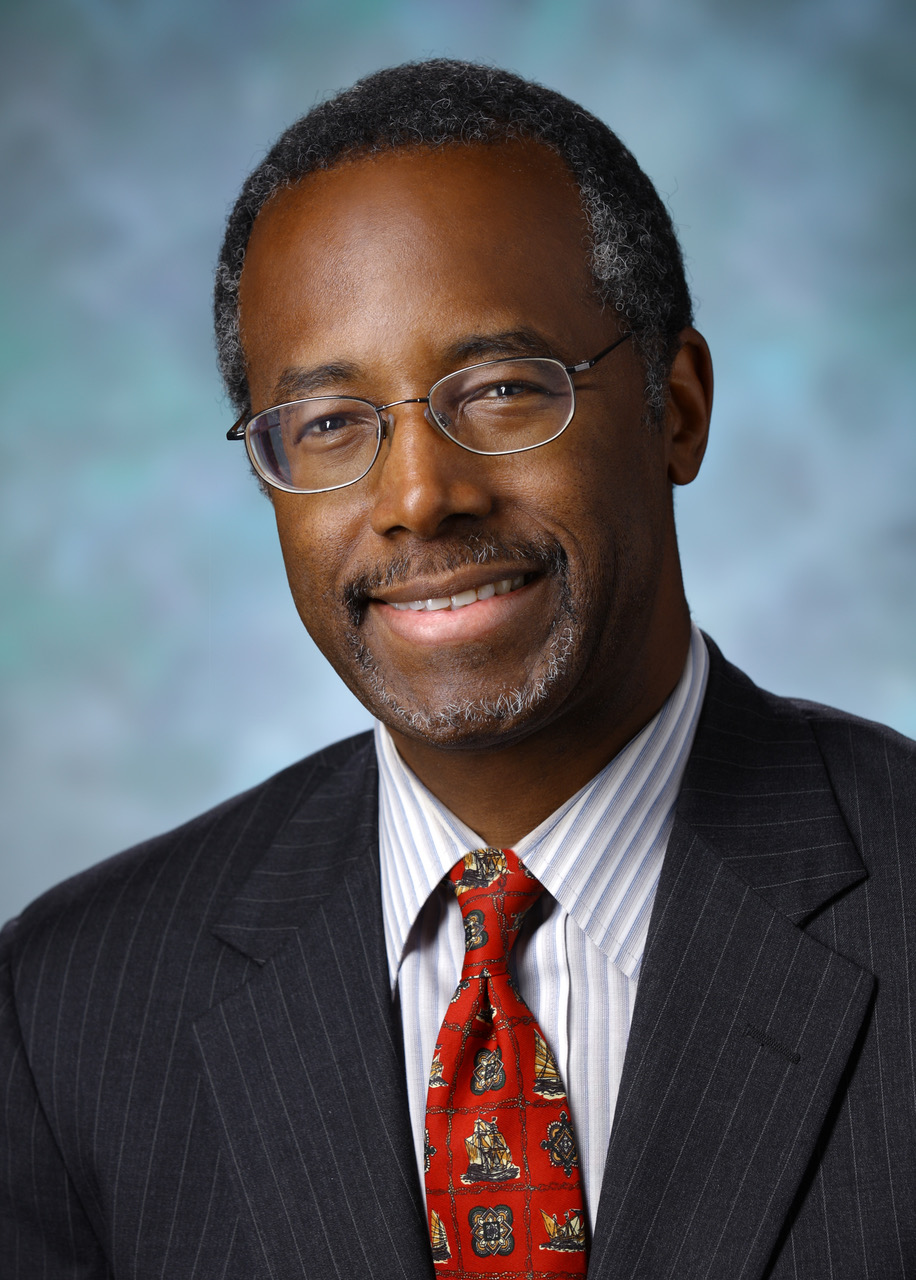filter posts:
Date
The Elephant in the Room Is Jesus
 I attended a panel discussion a few years ago that was advertised with the title, “Good without God.” Knowing that one of the largest growing groups in the country is the “nones,” those who answer surveys that ask for a religious affiliation that they have none, I wanted to hear what five from academia would say about their own spiritual journeys. I also was intrigued by the idea that there are those who have spent part of their lives seeking to disprove or at least to dismiss the “God idea,” as one of them described what many of you and I embrace.
I attended a panel discussion a few years ago that was advertised with the title, “Good without God.” Knowing that one of the largest growing groups in the country is the “nones,” those who answer surveys that ask for a religious affiliation that they have none, I wanted to hear what five from academia would say about their own spiritual journeys. I also was intrigued by the idea that there are those who have spent part of their lives seeking to disprove or at least to dismiss the “God idea,” as one of them described what many of you and I embrace.
Let me first say that I respect the panelists and their courage to speak out about what they believe, or don’t believe. I also thank God that we live in a country where that is still permitted. Like the founders, I believe that one of the truths that is self-evident is that human rights come from our Creator, not from government or any other institution of man. May God help us when those rights come under attack.
Second, I was also intrigued by any idea that good can exist outside of God, or that we can call something good or bad without appealing to an objective standard of morality. If we do not have an objective moral standard, then how do we determine whether the Red Cross is good or the Third Reich was bad? If we do not have an objective moral standard, how can we ask others to believe that our beliefs are good? If we don’t have an objective moral standard, and don’t care if anyone else on the planet believes the way we do, then of what value is our belief?
Third, the elephant in the room that evening was Jesus. His name never came up, and yet Jesus is the only founder of a “world religion” who claimed to be God. Buddha, Confucius, Zoroaster, and Muhammad came not claiming to be God but to be a way to God. Jesus alone said, “Truly, truly I say to you, before Abraham was, I am.” One of the panelists said that the whole “God idea” only dates back to Abraham, but that people were good for tens of thousands of years without God. Laying aside the argument over creation, Jesus plainly says he existed before Abraham, even though when he made this claim, Jesus was only 33 years old.
The problem with Christianity has never been Jesus, but it has always been us. We Christians sometimes give it a bad name because of our pride, our prejudice, or our ignorance. But make no mistake. It is to Jesus we must look to validate Christianity. If Jesus is found to be a fraud, or a lunatic, or self-deceived, Christianity crumbles. If Jesus did not rise from the dead after three days in a tomb, then all we who put our hope in him are fools at best.
So, here is the challenge. If you would see yourself with feet firmly planted with the nones, would you at least be willing to attack the resurrection of Jesus with every molecule in your body? Do what Lord George Lyttleton, Frank Morison, C.S. Lewis, Josh McDowell, Lee Strobel, and many others have done. Each of these former atheists were scholars, college professor, journalists, or members of Parliament. Each of them sought to disprove the resurrection of Jesus Christ. Each of them came to believe in Jesus after carefully examining the evidence with a desire to know the truth.
Be careful. The elephant in the room loves when people seek the truth.
November 10, 2020
What Do You Mean, “I Can’t?”
 Dr. Ben Carson was in town a number of years ago, and he spoke at Elon University. Dr. Carson, now the United States Secretary of Housing and Urban Development, was then the world’s most famous pediatric neurosurgeon, the first to successfully separate Siamese twins who were joined at the head. Carson told us in Whitley Auditorium that night that he performs nearly 500 brain surgeries a year. He said people are amazed at that, but they shouldn’t be.
Dr. Ben Carson was in town a number of years ago, and he spoke at Elon University. Dr. Carson, now the United States Secretary of Housing and Urban Development, was then the world’s most famous pediatric neurosurgeon, the first to successfully separate Siamese twins who were joined at the head. Carson told us in Whitley Auditorium that night that he performs nearly 500 brain surgeries a year. He said people are amazed at that, but they shouldn’t be.
“You can do much more than you think you can,” Dr. Carson told the packed house. “Your brain is a marvelous creation of God that we cannot even begin to understand.” To illustrate this point, Dr. Carson said that he could lead a blind-folded person who had not seen the audience onto the Whitley stage and take the blind-fold off for one second. Carson said he would put the blindfold back on, lead the person away, and wait 50 years. He could then do brain surgery on the volunteer, find where that one-second memory was stored, and the person could tell him where everyone in the audience was seated, what they looked like, and what they were wearing. “Your brain can process 2 million bits of information per second,” Carson said.
Dr. Carson looked at the stunned audience and asked, “So what are you talking about when you say, ‘I can’t?’ As my mother loved to tell me,” Carson continued, “Son, you are not a victim.”
Besides operating more than 500 times a year during in his career as a surgeon, Dr. Carson spoke at least 75 times at colleges, churches, and anywhere else he believed there would be an attentive audience. He told us that night at Elon that people often ask how he can give 75 speeches a year. Carson said he likes to reply, “Well, it’s not brain surgery!”
Dr. Ben Carson kept us riveted that night as he talked about the marvels of modern science and the complexities of the human brain. But he was interrupted by applause when he talked about moral values and spiritual foundations. He said that the turning point in his life came when he was 12 years old. He lived in a broken home with his mother and a brother in Detroit’s inner-city, and his nickname at school was “Dummy.” He and his brother were continually getting into fights, and one night his mother prayed that God would give her wisdom to know how to raise these two sons by herself. She came up with the idea to turn off the television and only allow one or two programs a week. She told her boys they had to read two books apiece each week from the Detroit Public Library, and they had to turn in book reports to her on each one. She couldn’t read, but Ben and Curtis didn’t know that. Within a year and a half, Ben Carson went from the bottom of the class to the top. His life changed and he credits God with making the difference.
In his book, Think Big, Carson uses the title as an acronym for what he believes are the eight keys to excellence in life. The last letter, G, stands for God. Ben Carson, recipient of 24 honorary doctorates, said, “You never get too big for God. I pray before every surgery. I figure if he created the body, he sure knows how to fix it.”
The Bible says, “A faithful man will abound with blessings.” Ben Carson is greatly blessed, in part, because he has been faithful to give God glory for all he does.
Image by Carsonscholars.org
November 1, 2020
Those Who Understand Their Purpose Seldom Leave Their Posts
 The first time I visited Kenya and went with our mission team to Masai Mara in the southern part of the country, I was enthralled. The Masai village we visited consisted of 10 huts, each built with sticks, mud and cattle dung. They are arranged in a tight circle, and the only entrance into the village is through a gate, which is closed and guarded at night. As we walked in and were welcomed by the Masai warriors (dressed in traditional red, many carrying clubs, one wearing a lion’s mane as a headdress), we had to be careful not to step on cattle dung. The Masai gave us their traditional welcome dance, forming a circle and taking turns leaping as high as they could as the others chanted a greeting to the ‘musungu’ visitors. After the welcome, they gave us a tour and explained the life of the Masai.
The first time I visited Kenya and went with our mission team to Masai Mara in the southern part of the country, I was enthralled. The Masai village we visited consisted of 10 huts, each built with sticks, mud and cattle dung. They are arranged in a tight circle, and the only entrance into the village is through a gate, which is closed and guarded at night. As we walked in and were welcomed by the Masai warriors (dressed in traditional red, many carrying clubs, one wearing a lion’s mane as a headdress), we had to be careful not to step on cattle dung. The Masai gave us their traditional welcome dance, forming a circle and taking turns leaping as high as they could as the others chanted a greeting to the ‘musungu’ visitors. After the welcome, they gave us a tour and explained the life of the Masai.
Let me say to any women who are reading that you can thank God every day you were not born Masai. The first thing a Masai woman must do after she gets married is build the house where she and her husband will live. Then her day consists of tending the children, fetching the firewood, cooking the meals, cleaning the house, and making repairs on it when necessary. You’re thinking the same thing I am, aren’t you? What does the man do?
I asked a Masai warrior that question, and he looked at me like I was from another planet. Then he said, very seriously, “We protect the village.” He had a point. This was lion country, and lions love Masai cattle. That’s the other thing Masai men do; they take care of the hundreds of cattle that each village owns. There’s one more thing the Masai men take very seriously: they train young Masai boys to become men.
As we drove through Masai territory I saw little boys, no older than 4 or 5, herding chickens around with a stick. I saw older boys, maybe 9 years old, taking care of a herd of goats. The young teenage boys were taking care of a small herd of cattle. Almost as soon as a little Masai boy is weaned, he is sent to work with Daddy. He learns the skills of his father, learns to hunt and kill predators, learns to protect the village, learns to be a man. A 10 year old Masai boy can throw a club with great accuracy from 30 feet and hit a lion or hyena that has crept into the area. I was told that when a lion sees a Masai walking across the savannah, carrying his spear and his club, the lion turns and goes the other way.
So when I asked how many of the young men grow up and leave the Masai culture and move into the cities, the man I asked looked at me like I had just asked how cows feed their young, like what I said was “udderly” ridiculous. He replied with a scowl, “Almost none leave.” “Why not?” I persisted. He said firmly, “Because they know they are Masai.”
I believe it is universally true: those who understand their purpose and their calling will not abandon their posts. We fathers who follow Christ are given a clear purpose when it comes to our own children. “And you, fathers, do not provoke your children to wrath, but bring them up in the training and admonition of the Lord.” (Ephesians 6:4) Are we standing firm, manning our positions, doing the great work of fatherhood?
May God help us be faithful.
October 25, 2020
Go Ahead and Move to Humility
 I remember those early Saturday mornings in the summertime when the kids were little and we were all loaded up in the car and headed to Holden for a week of vacation. You couldn’t do much more to increase my joy at that moment. But if the kids wanted to just send me over the top in ecstatic utterances of praise, all they had to do was get along with each other on the trip. They would have the same mind, to paraphrase Paul’s letter to the Philippians, the same love, and be in one accord. Even though we were really in one Odyssey. Paul is pointing to a place we all should move to as soon as possible. Humility. It’s not a geographical location but a way of life. What does that look like in our relationships?
I remember those early Saturday mornings in the summertime when the kids were little and we were all loaded up in the car and headed to Holden for a week of vacation. You couldn’t do much more to increase my joy at that moment. But if the kids wanted to just send me over the top in ecstatic utterances of praise, all they had to do was get along with each other on the trip. They would have the same mind, to paraphrase Paul’s letter to the Philippians, the same love, and be in one accord. Even though we were really in one Odyssey. Paul is pointing to a place we all should move to as soon as possible. Humility. It’s not a geographical location but a way of life. What does that look like in our relationships?
It means that we have the same love. Let’s face it, some Christians are like porcupines; they have a lot of good points but they’re hard to get close to. Notice that Paul surrounds having the same love with two phrases about being of the same mind. Every fight between church members starts in the mind. A church split in Dallas started when one of the church elders was served a smaller slice of ham than the child sitting next to him. I’m not making this up. Instead of keeping his big mouth shut, stuffing it with a big slab of apple pie, the church elder expressed his displeasure, and the pork problem led to a church-wide divorce. The whole thing started in his mind, and revealed a lack of love for his fellow church members.
Humility means also that we do nothing from selfish ambition or conceit. John Wooden, famed UCLA basketball coach said, “Talent is God-given; be humble. Fame is man-given; be thankful. Conceit is self-given; be careful.” Paul had just written to the Philippians about the preachers who were proclaiming Christ out of selfish ambition. But Paul didn’t gloat and exalt himself above them. He praised God that Christ was being preached. How could Paul be so lacking in selfish ambition and conceit? Here’s how, and he concludes the verse with it: “In humility count others more significant than yourselves.” This command pierces our hearts, doesn’t it? This runs so counter to everything in our culture, where self-promotion seems to be the key to success, and ambition and conceit the normal fare. Instead, let’s pull up stakes and move our heart and our life to Humility. John Stott wrote, “At every stage of our Christian development and in every sphere of our Christian discipleship, pride is the greatest enemy and humility our greatest friend.”
Finally, humility means that you “Look not only to your own interests, but also to the interests of others.” If our whole life is a series of selfies, interrupted by the occasional detour into serving people at a food pantry or sending a check to a missionary, then we have missed the point, haven’t we? I was in Wal-Mart with my wife a few years ago, and my goal in that store (and any other store) is simple: get in, get it, get out. I had that look on my face, I guess, and Cindy said, “You know, if you look around at the people, it changes your perspective. I see people in here who are hurting, and it causes me to pray for them as we pass by.” Ouch. Suddenly my goals for shopping at Wal-Mart changed, as I moved my heart to Humility for the rest of that trip.
Go to the beach or the mountains, sure! But by all means, move to Humility. Life is better there.
October 18, 2020
These Are Days We Will Never Forget
 Some memories are permanently etched on our minds. Others fade with time. Everyone who is at least 23 years old or so remembers where he was on Tuesday morning, September 11, 2001, that day when jetliners were flown into the World Trade Center and the Pentagon by terrorists. I was at college coffee at Elon, just after my 8:00 class, and oblivious to what had been taking place minutes earlier. Another professor mentioned the horror of it, and I asked her what she was talking about. Then I walked/ran back to the Communications building and watched with a group of thirty or so as the story unfolded before us on the plasma screen. A few students were weeping, and when I found out they had relatives who worked in New York, several of us talked and prayed with them, to give comfort and to “weep with those who weep.”
Some memories are permanently etched on our minds. Others fade with time. Everyone who is at least 23 years old or so remembers where he was on Tuesday morning, September 11, 2001, that day when jetliners were flown into the World Trade Center and the Pentagon by terrorists. I was at college coffee at Elon, just after my 8:00 class, and oblivious to what had been taking place minutes earlier. Another professor mentioned the horror of it, and I asked her what she was talking about. Then I walked/ran back to the Communications building and watched with a group of thirty or so as the story unfolded before us on the plasma screen. A few students were weeping, and when I found out they had relatives who worked in New York, several of us talked and prayed with them, to give comfort and to “weep with those who weep.”
I asked my college students a few years ago how old they were when the terrorist attack happened, and most of them said they were in the first grade. I smiled and said, “When I was in the first grade, in Mrs. Miller’s class, our principal came over the intercom and let everyone in the school know that President John F. Kennedy, had just been shot in Dallas.” There was silence in the classroom for a second, and then one of the students said, “See? Bad things happen to us when we are in the first grade.” Well, that lightened the mood for a moment, but the thought lingered long after the laughter: there are days in all of our lives that shape us. Some are collective memories, as the day the terrorists attacked, or the assassin struck, or the space shuttle exploded. Others are personal memories.
I will never forget the day a camp counselor threw me off a dock. We were all swimming in the lake. Well, this little eight-year old wasn’t, because I had not yet learned to swim. The counselor thought I was just being timid, so he decided to help me along with his form of shock therapy. He picked me up and said, “Let’s go, Fox,” and threw me into the murky water. When I fought my way to the surface and spluttered, “I can’t swim!” the counselor had a totally different revelation about his technique. But I became a swimmer that day.
I will never forget getting the phone call at college that my grandfather had died. He wasn’t just my mother’s father. He was one of my best friends. As a teenager I liked nothing better than sitting under a dogwood tree in his front yard, talking about life, hearing his stories, and enjoying the love that we shared for each other. I became acquainted with grief that day.
I will never forget the day I met Cindy for the first time. We were both students at UNC, and though we lived in the same apartment complex, we had never met. Until a warm day in May of 1981. When a new friend took me to meet the four girls, I saw the others but not really. There was just Cindy, and though it was in the light of day, I could have burst into the Flamingo’s tune and crooned, “Are the stars out tonight? I don’t know if it’s cloudy or bright, ‘cause I only have eyes…for you.” It’s good that I didn’t. That may have forever marred the memory for both of us. As it is, I found my lifelong companion that day.
There are days that we will never forget, days that will shape who we are forever. We are living in one of those days now, when the world is gripped by a virus and everything has changed. It sometimes feels like life will never be “normal” again, but as Patsy Clairmont used to say, “Normal is just a setting on the dryer.” It’s true. The only normal we know in our human existence this side of heaven is this: things and people change.
That is why we hold onto to the One who never changes, who is the same yesterday, today and forever. The Psalmist wrote, “God is our refuge and strength, a very present help in trouble. Therefore, we will not fear though the earth gives way, though the mountains be moved into the heart of the sea.”
Through it all, there is God who loves us. There is nothing more important to never forget than that.
October 11, 2020
When a Lame Beggar Ran in Church
 When I wrote that title it took me back to a pastors’ conference I attended years ago. Pastors are an insecure bunch. I met one at this conference who, I promise, two seconds after he found out my name and where our church is located, looked at me and said, “So, how many you runnin’ in Sunday School?” I refused to play the one-upmanship game with him, so I said, “Oh, we really discourage running in Sunday School. Someone could get hurt!” He looked at me weird for a second and then chuckled. “Ha, that’s pretty funny.” Beat. Then, “So…how many you runnin’ in Sunday School?” I told him we didn’t have Sunday School and he really thought I was weird, then! Back to the real point of this column…
When I wrote that title it took me back to a pastors’ conference I attended years ago. Pastors are an insecure bunch. I met one at this conference who, I promise, two seconds after he found out my name and where our church is located, looked at me and said, “So, how many you runnin’ in Sunday School?” I refused to play the one-upmanship game with him, so I said, “Oh, we really discourage running in Sunday School. Someone could get hurt!” He looked at me weird for a second and then chuckled. “Ha, that’s pretty funny.” Beat. Then, “So…how many you runnin’ in Sunday School?” I told him we didn’t have Sunday School and he really thought I was weird, then! Back to the real point of this column…
The man had never walked before, and he was over forty years old. We don’t know anything about the pain of his childhood that surely brought scars as he watched other children run and play while he sat and watched and wondered what it would be like. We don’t know anything about his young adulthood, when he had to watch the merchants and farmers and carpenters and fisherman hurry past him on good strong legs, rushing off to work that he knew nothing about. As was the Jewish custom, this man was forced to beg in order to survive. Every day he was carried to the gate of the temple where he asked devoted passersby for help. He was set down in front of the “Beautiful Gate,” the affectionate name of the eastern entrance to the Jewish Temple in Jerusalem, so named because it was covered with Corinthian brass. The rising sun shimmered on this magnificent edifice that stood seventy-five feet high and required twenty men to open. It was beautiful. And it was powerful. The contrast could not have been more striking, the beautiful gate and the broken man.
We read in the third chapter of Acts that Peter and John went up to pray in the temple, as was their custom, and they passed by the lame man being carried to his normal spot. The man did not even look at the two apostles, but repeated the words he had spoken thousands of times. Something about this story intrigues me. We know that Peter and John went to pray daily in the temple, and went through this particular gate often. They had surely seen this man before, many times. But this was the day that they really saw him. This was the day that God chose to give Peter faith to ask for this man’s healing.
The apostle gave the man two commands. First, Peter said, “Look at us.” The man looked up, not expecting a miracle, but hoping for money. Second, Peter said, “In the name of Jesus Christ of Nazareth, rise up and walk.” How do I know Peter was given faith to ask for healing? Well, when was the last time you walked up to someone desperately ill and not able to get up and said, “In the name of Jesus Christ of Nazareth, rise up and walk?” I am guessing never. But if you have said that to someone, you were either outside your mind, or you were given the gift of faith by God at that moment because He had a miracle in mind. The proof would be in the pudding, or in the healing. That is what we see happen in this account.
Peter reached out his right hand and raised the man up, and an amazing miracle took place. There was no rehab needed for ankles and calves and hamstrings and quads that had never worked. Think of it. How many of you have children who just jumped up one day and started running, having never scooted, crawled, pulled up or walked? One minute your 5-month-old is lying on the floor, and the next he is chasing the dog out the door. Anybody? No, it takes months for a child to learn to walk. Not this man. Jesus healed him instantly and thoroughly. And for the first time, he got to enter the temple, where he was seen “walking and leaping and praising God.”
You want to know more about how God did it, and what happened next? Read Acts 3 and find out the rest of the story.
October 5, 2020
Sheep Desperately Need Shepherds
 USA Today carried this story in 2005 from Istanbul, Turkey:
USA Today carried this story in 2005 from Istanbul, Turkey:
“First one sheep jumped to its death. Then stunned Turkish shepherds, who had left the herd to graze while they had breakfast, watched as nearly 1,500 others followed, each leaping off the same cliff, Turkish media reported. In the end, 450 dead animals lay on top of one another in a billowy white pile, the Aksam newspaper said. Those who jumped later were saved as the pile got higher and the fall more cushioned. After one of the sheep tried to jump a ravine, the rest of the flock followed.”
What is going on here? You have heard the mythical story of lemmings rushing to the sea, all caught up in Groupthink gone horribly wrong. Here we have a similar story, only this time it’s a herd of sheep, all following a leader who is very confused. This rogue sheep made a deadly decision and 1,500 of his closest friends blindly followed him. You could spin this story and say that 450 of the sheep laid down their lives for their comrades. But don’t pull the wool over your eyes. That’s not what happened here. You could say that sheep are naturally sociable and would rather die together than live alone. That, too, would be wrong, and I would be fleecing you to even suggest it. You could say that since these sheep lived in Turkey, perhaps they thought they could fly. That would be a really “baaad” attempt at humor, and it, too, would be off the mark.
No, these sheep were simply acting the way God designed them. Sheep are not the brightest of four-legged creatures. If left unattended, sheep will wander off a cliff, or into a thicket where they are held fast, or stumble over rocks and end up ‘cast’ (on their backs, unable to turn). In any of these scenarios, the sheep that leaves its shepherd is easy prey for a wolf, a hyena, or any number of sheep-eating predators. Besides that, sheep are pest-magnets: they get ticks, lice and worms, and regularly have to be dipped in strong chemicals to keep them healthy. Maybe all of those reasons combined explain why God compares us to sheep in the Bible. “All we like sheep have gone astray; we have turned — every one — to his own way…” The hymn writer said it this way: Prone to wander, Lord I feel it, prone to leave the God I love.
This is why sheep need shepherds, and why pastors and elders, those who shepherd the local church, need to carefully stay under Christ’s authority. Paul said to the elders of the church at Ephesus, “Pay careful attention to yourselves and to all the flock, in which the Holy Spirit has made your overseers, to care for the church of God, which He obtained with His own blood.” Think about that verse for a moment. Leaders must pay careful attention first to their own lives, and make sure there is no gap between what they say and how they live. They are also to care for the church, which belongs to God, and which He purchased with the blood of His Son. Do you get that? The purchase price for the church is unmatched in the universe. There is nothing more precious than the blood of Jesus. That means the value of the church to God is incalculable. There are not enough zeros to match the price God paid to redeem His people.
Don’t follow sheep off a cliff. Find shepherds who follow the Lord and stay close. But remember that those shepherds in your church are just sheep to whom God has given a precious responsibility. Pray for them. Encourage them. Don’t let your hearts grow bitter towards them. They need you as much as you need them.
September 28, 2020
God Clearly Answers the Big Questions
 All the lonely people, where do they all come from?
All the lonely people, where do they all come from?
All the lonely people, where do they all belong?
Eleanor Rigby died in the church and was buried along with her name.
Nobody came.
Father McKenzie wiping the dirt from his hands as he walks from the grave.
No one was saved. All the lonely people…
Paul McCartney and John Lennon spoke for a generation searching for truth. Are there answers? How does the Bible speak to the songwriters and philosophers of every age? In his message to the philosophers on Mars Hill (Acts 17) Paul took the four basic questions of the universe and answered them clearly. The questions include: Where did we come from? Why are we here? Who are we? Where are we going?
The first answer is that God is creator and Lord of everything. We are not a random collection of molecules, thrown together by chance. The second answer is God is sustainer of everything in the universe. God does not depend on us; we depend on God. That’s why another songwriter penned these words: “Nothing in my hand I bring, Simply to Thy cross I cling…Foul, I to the fountain fly; Wash me, Savior, or I die.”
Third, we are made in the image of God. That’s who we are and whose we are.
No matter what our race or color, we each bear God’s image. The truth is, almost every person struggles with racism at one level or another. When we give in to the sin of thinking of ourselves as either racially superior to others not like us, or racially inferior to others not like us, we are denying one of the most basic and glorious truths of Scripture, that “God created man in His own image, in the image of God He created him; male and female He created them.” I recommend on this subject that you find John Piper’s sermon on the internet entitled “Racial Reconciliation.” It is powerful. Let me just offer one of his eight points in this column: “In determining the significance of who you are, being a person in the image of God compares to ethnic distinctives the way the noonday sun compares to a candlestick. In other words, finding your main identity in whiteness or blackness or any other ethnic color or trait is like boasting that you carry a candle to light the cloudless noonday sky. Candles have their place. But not to light the day. So, color and ethnicity have their place, but not as the main glory and wonder of our identity as human beings. The primary glory of who we are is what unites us in our God-like humanity, not what differentiates us in our ethnicity. This is the most fundamental reason why programs of ‘diversity training’ usually backfire in their attempt to foster mutual respect among ethnic groups. They focus major attention on what is comparatively minor, and virtually no attention on what is infinitely, gloriously major—our common, unique standing among all creation as persons created in the image of God.”
The fourth answer is that God is our judge. Read Acts 17 and see that the judgment of God will be universal: “all men, everywhere.” It will be fair: “He will judge the world in righteousness.” It will be unavoidable. “He has fixed a day.”
Where are you going? To meet the King! As the old Gospel song said, “Are you ready to sit by His throne?”
September 21, 2020
Don’t Be a Stalker
 In his book, Love Does, Bob Goff writes, “I get paid as a lawyer to collect information and memorize facts, and I’ve gotten really good at it. What I realized about my faith is that I was doing just that, collecting information and memorizing things about God. I collected pictures and gathered artifacts and bumper stickers about Christianity, and I talked about knowing Jesus like we were best friends, when actually, we hardly knew each other at all. At some point I had to confess that I was stalking Jesus. I was actually creeping myself out a little and I realized I was probably creeping God out too. So I decided I’d stop. The first thing I did was quit going to what Christians call Bible Study. Sounds wholesome. But at the ones I went to, I (just) learned a bunch of facts and information about Jesus…So, I started getting together with the same guys each weeks for a ‘Bible doing.’ We read what God has to say and then focus all of our attention on what we are going to do about it. Just agreeing isn’t enough. I can’t think of a single time when Jesus asked His friends to just agree with Him.”
In his book, Love Does, Bob Goff writes, “I get paid as a lawyer to collect information and memorize facts, and I’ve gotten really good at it. What I realized about my faith is that I was doing just that, collecting information and memorizing things about God. I collected pictures and gathered artifacts and bumper stickers about Christianity, and I talked about knowing Jesus like we were best friends, when actually, we hardly knew each other at all. At some point I had to confess that I was stalking Jesus. I was actually creeping myself out a little and I realized I was probably creeping God out too. So I decided I’d stop. The first thing I did was quit going to what Christians call Bible Study. Sounds wholesome. But at the ones I went to, I (just) learned a bunch of facts and information about Jesus…So, I started getting together with the same guys each weeks for a ‘Bible doing.’ We read what God has to say and then focus all of our attention on what we are going to do about it. Just agreeing isn’t enough. I can’t think of a single time when Jesus asked His friends to just agree with Him.”
I believe Philip must have been a part of a group like that in the first century. When the story opened in Acts 8, he was in Samaria. He’d been preaching Jesus to the Samaritans, with great success. Many had been baptized and there was much joy there. Then God told Philip to leave the city, where many were hearing the Gospel and being saved, and go to a desert place. To the middle of nowhere. On the face of it, it just didn’t make sense. But God’s ways are higher than our ways. God, who cared about the many in Samaria, cared also about the one in the desert.
The command that came to Philip was simple: “Rise and go toward the south to the road that goes down from Jerusalem to Gaza.” The road that ran south out of Gaza ran all the way into Egypt, and the continent of Africa. It wasn’t Gaza that God was after that day. It was Africa. Starting with one Ethiopian, whom Philip was about to meet. But the command was simple: rise and go.
May I suggest to you that God’s greatest works start with a simple command? Abraham, rise up and go: leave this place and go to the place that I will show you. Moses, rise up and go: tell Pharaoh to let My people go. Peter, rise up and go: feed My sheep. I believe the foundation of the church is Jesus Christ, who is the cornerstone, and the men and women who have responded to God’s simple commands. Where would the church be if Peter had not obeyed? Or if Paul had refused to take the Gospel to the Gentiles? Which brings up an all-important question, especially for the fathers. God has given you a simple command as well. Fathers, rise up and go: disciple your children. To do that properly, you have to make sure that you are a disciple yourself, and that you are not just a stalker, always looking at the church or the Bible or even Jesus Himself from a distance, not daring to get too close.
I love the way the story ends. God gave a simple command. Philip chose a simple response: “… he rose and went.” Philip wasn’t just interested in Bible Study. He was also into Bible doing.
How about you?
September 13, 2020
Jesus is the great I AM
 It was an amazing thing. From atop the mountain, Jesus saw his disciples in the boat, struggling against their oars in the fierce wind, getting nowhere on the Sea of Galilee. He left his place of prayer, went down the mountain, stepped onto the sea, and walked on the water to them. Why do we have that expression in our vernacular, “Oh, that guy thinks he walks on water”? Because somebody, namely Jesus, did!
It was an amazing thing. From atop the mountain, Jesus saw his disciples in the boat, struggling against their oars in the fierce wind, getting nowhere on the Sea of Galilee. He left his place of prayer, went down the mountain, stepped onto the sea, and walked on the water to them. Why do we have that expression in our vernacular, “Oh, that guy thinks he walks on water”? Because somebody, namely Jesus, did!
It is also interesting that Mark’s gospel included that Jesus “meant to pass them by.” What? He meant to walk past them on the water and not stop?
We cannot say for certain what is going on here. But we can say for sure that Jesus was not playing games. He didn’t see the 12 disciples struggling, tormented by the wind for hours, hands blistered and bloody, and say to himself, “That’s a shame, and bless their hearts; I hope they make it!” No. This story could not end any other way than the Lord coming to rescue his own and at the same time reveal to them a greater rescue operation that they still would not understand.
Many believe that Mark used the phrase “pass them by” as a fulfillment of what the Old Testament saints could only see in shadow. Remember when Moses told God he wanted to see his glory, and God hid Moses in the cleft of a rock, and then God “passed by” Moses? Moses could see the back of God but not his face. Then God did the same with Elijah when the prophet was afraid that he was all alone. “The Lord passed by,” and though Elijah could not see God, he could hear his still, small voice. But there is an even clearer foreshadowing of this scene in the book of Job. Job says of God that he “stretched out the heavens and trampled the waves of the sea.” Then he says, “Behold, he passes by me, and I see him not; he moves on, but I do not perceive him.”
Here in Mark’s gospel the God of all creation appeared to be passing by but then stopped to help his disciples. Jesus walked on the water and came to his own, revealing the glory that he alone shares with the Father, extending the compassion that his followers need. James Edwards says Jesus was answering the disciples’ earlier question when they said to each other, “Who is this, that even the wind and the waves obey him?” Edwards writes, “The one who calmed the storm is the one who now appears in the storm, the I AM of God.”
When Jesus walked on the Sea of Galilee and approached the disciples, they were terrified, thinking he was a ghost. He said to them, “Take heart; it is I. Do not be afraid.” This “It is I” is the same as God’s self-disclosure to Moses, when Moses was afraid to go to the Pharaoh. “Whom shall I say sent me?” Moses asked. God replied, “I AM WHO I AM.” God could have said, “Tell them ‘It is I’ sent you.”
“It is I,” the Lord says to his terrified disciples, and to you and me. Jesus not only walks on the water as Job says, but he takes God’s name. Who is Jesus? He is the great “I Am.” He is Jehovah Adonai, the Lord our Sovereign. He is Jehovah Elohim, the Lord our Creator. He is Jehovah Jireh, the Lord our Provider. He is Jehovah Rophe, the Lord our Healer. He is Jehovah-Nissi, the Lord our Banner. He is Jehovah Shammah, the Lord who is Present. He is Jehovah Rohi, the Lord our Shepherd.
The Son of God, the great I AM, got into the boat, and the wind ceased. Only then. Jesus’ presence overcomes storms in our lives, as well, even when the storms may continue to rage around us. No matter the storm, no matter the virus, no matter the disease, no matter the political upheaval, no matter the suffering, no matter what. Jesus, the great I AM, is with his people. That’s an anchor in any storm.
September 6, 2020
